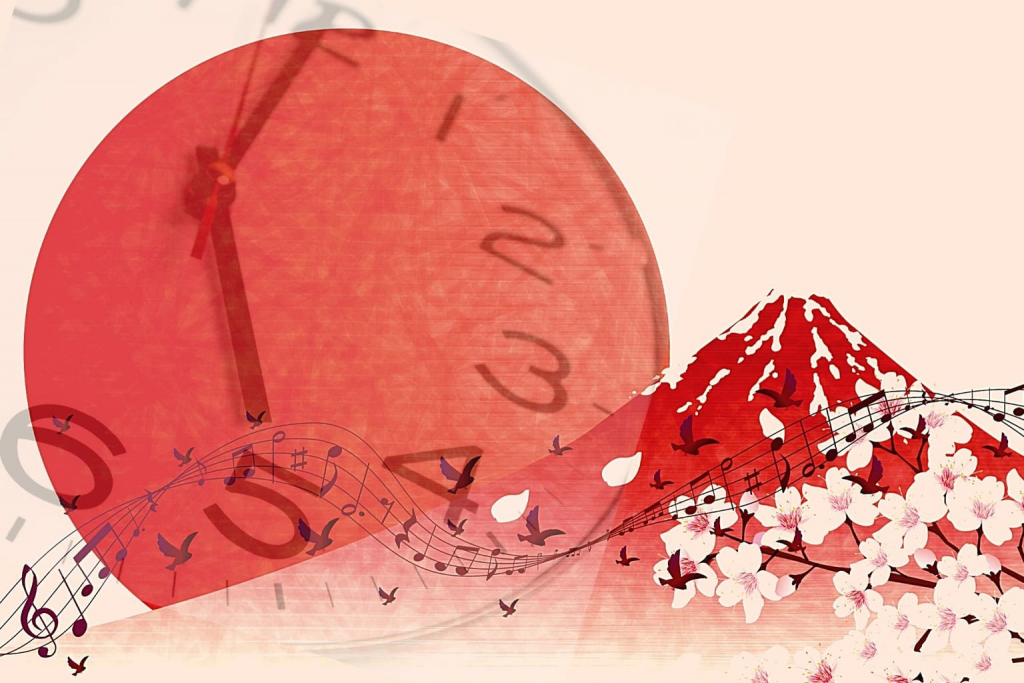One doesn’t have to be in Tokyo — or anywhere in Japan — for long before noticing that something special happens at 5pm daily.
In most Tokyo wards and towns across Japan, a chime will sound its eerie tune at precisely 5pm (or, depending on where you live, earlier). Some regions change both the tune and time they are played as the seasons change, but most keep to one song, at the magic hour of 5 o’clock.
What are the Chimes For?
Although it seems that many Tokyoites are under the assumption that this bell is a reminder for children to make their way home, it’s not the chimes’ primary purpose. These sound systems are in place for emergency announcements and the daily ring is a way for both the government and the people living and working in the area to confirm that everything is in order. These are similar to siren tests in places like France, though here it’s a daily occurrence rather than weekly due to the high risk of earthquakes and other natural disasters. Also, because the tests occur so often, it’s thought better to have a nice melodic tune playing daily, rather than an actual siren sound, which might alarm residents needlessly.
What Melodies Do They Play?
While each may not have a different melody, most wards have a signature tune, using either a popular nursery rhyme or a simple clock chime. Here’s a breakdown of the chimes you’ll hear across the city and beyond:
Yuyake Koyake
This melody will be familiar to most Tokyoites as it’s played in more than half of the wards across the city. Many Kanto towns use this song as well. The lyrics (heard in the original version) were taken from a 1919 poem by Ukou Nakamura and set to music by Shin Kusakawa in 1923. The soft and slightly melancholy song sings of country life and what the poet saw every day as the sun set.
Those wards using this melody are Shinjuku-ku, Minato-ku, Itabashi-ku, Sumida-ku, Kita-ku, Edogawa-ku, Shibuya-ku, Katsushika-ku, Shinagawa-ku, Adachi-ku, Chiyoda-ku, Nerima-ku, Ota-ku, Suginami-ku and Sumida-ku.
The Yuyake Koyake chimes:
The original song, with lyrics:
Westminster Chimes
The second most popular chimes in Tokyo isn’t a song, but instead makes use of the full version of the Westminster Quarter chimes. (These chimes are usually rung every 15 minutes.) You’ll hear these chimes in Setagaya-ku, Koto-ku and Chuo-ku.
Westminster Chimes:
Meguro – Minna no Uta
Meguro Ward is fancy enough to have its own original melody, coupled with lyrics describing how great the area is.
Meguro – Minna no Uta chimes:
Furusato
Furusato, which means hometown or birthplace, is traditional 1914 song that brings up memories of home and the beauty of the countryside. The song experienced a revival when pop group Exile’s Atsushi released his cover version of it in 2012. If you want to hear this tune, head to Toshima-ku.
Furusato chimes:
Exile Atsushi’s cover:
Kibou no Kane
Literally “the bell of hopes or aspirations,” the origins of this particular chime remains a mystery to the Tokyo Weekender team. Do any readers recognize where it’s from? You can find this chime in Taito Ward and Hachioji.
Kibou no Kane:
Ieji
“Ieji” means the road home and the song is commonly mistaken as a Japanese original, and many Brits will associate it with fresh bread and country lanes as it was used in the famous 1973 Hovis bread commercial director by a young Ridley Scott. This tune is actually a snippet from a piece originally composed by Czech composer Antonín Leopold Dvořák, called Symphony No. 9 (From the New World). Lyrics were added to the second movement of this composition by one of Dvořák’s pupils, William Arms Fisher, and it was named “Goin’ Home”. You can find this one in Nakano Ward.
Ieji chimes:
The Classic Hovis bread commercial:
Arakawa Kumin no Uta – Soshite Mirai e
Like Meguro, Arakawa Ward has its own tune, along with lyrics that are quite insistent about describing exactly how wonderful the ward is. Given that the song was written in the early ’80s, they still had a lot to be excited about before the Bubble burst.
The Sound of Silence
Finally, out of all the 23 wards, there is one single ward that doesn’t use the external speakers daily. Bunkyo-ku! Instead, locals can listen to the chimes twice daily at 8:45am and 3:15pm, but only on TV. The system was dismantled in November 2015 and the only time the external sound systems will be used are in times of crisis.
Other Regions
Tokyo isn’t alone in this sound system checking custom, and some may say that other cities have a more creative approach to their alarm system checks. We’ll let you decide…
Akatombo (Red Dragonfly)
Although Mitaka City is technically a part of Tokyo, it’s not one of the 23 special wards and thus doesn’t make it into the main listing.
Akatombo melody with lyrics:
Akatombo chimes:
A Cruel Angel’s Thesis
This rather dramatic sounding song will be familiar to many anime fans. It was used as Neon Genesis Evangelion’s opening theme tune and is played in Minamisanriku in Motoyoshi, Miyagi Prefecture. Hidetoshi Sato, who composed the song, is from this town. Even non-anime experts may recognize it, as it’s played in supermarkets and turns up in the background on TV every so often.
A Cruel Angel’s Thesis chimes:
A Cruel Angel’s Thesis original:
Radio Taisou – Radio Calisthenics
This is another ubiquitous tune, but usually associated with early morning stretching exercises. Akahama-cho in Seiyo City, Ehime Prefecture evidently decided that everyone should be doing these and blares the instructions out at 7am every morning. This means of course that the playing time lasts over 10 minutes, which could be considered a bit of a nuisance to those wanting a relaxing lie-in. The calisthenics exercise is preceded by J.S. Bach’s Suite No.2 in B minor, making it an interesting auditory combination.
Radio Calisthenics chimes:
J.S. Bach’s Suite No.2 in B minor
Radio Calisthenics with demonstration:
Forever Love (X Japan)
Last but certainly not least is a true rock classic. Tateyama City in Chiba Prefecture has a more modern song that many J-rock fans will know instantly. On Friday nights, weekends and holidays, legendary rockers X Japan’s ballad “Forever Love” can be heard across the city. It was chosen as a tribute to X Japan members Toshi and Yoshiki, as they both hail from the area.
Forever Love chimes:
Original song:
Have you heard any interesting chimes in other cities in Japan? Let us know!









